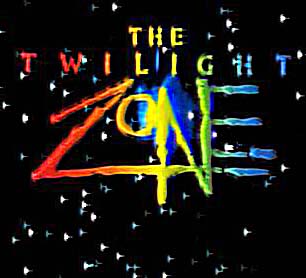 |
||||||||||||||||||||||||||
|---|---|---|---|---|---|---|---|---|---|---|---|---|---|---|---|---|---|---|---|---|---|---|---|---|---|---|
| Story by Parke Godwin | ||||||||||||||||||||||||||
| Teleplay by Alan Brennert | ||||||||||||||||||||||||||
| Directed by Shelley Levinson | ||||||||||||||||||||||||||
| Original Airdate - July 10, 1987 | ||||||||||||||||||||||||||
|
||||||||||||||||||||||||||
| Story: | ||||||||||||||||||||||||||
|
||||||||||||||||||||||||||
"Time and Teresa Golowitz," one of the last of the great new Twilight Zone segments, is based on a short story by Parke Godwin which had a slightly different title: "Influencing the Hell out of Time and Teresa Golowitz." Godwin has seemed to specialize in historical stories, whether in their present or like this one, making a change to a character's past. I remember liking "The Lady of Finnegan's Hearth," one of Godwin's short stories, in the excellent Marvin Kaye anthology, "Ghosts." Kaye's anthology also has one of the best ghost stories I've ever read, Fritz Lieber's "Four Ghosts in Hamlet." If you haven't read it, do so; it's a masterpiece. Alan Brennert adapted the teleplay from Godwin's story, and even if you didn't know this you would have an idea that he was the adaptor because it's characteristic of his work. It's a heartwarming teleplay, filled with witty dialogue and memorable sequences. It probably should have been given the same treatment as "Her Pilgrim Soul," with a longer running time; in this type of story you don't want to rush things. Paul Sands plays the grown up Bluestone; he's on-screen for only a short time at the beginning and end of the segment. The majority of the show has Grant Heslov playing the younger Binky Blaustein, and Heslov is wonderful in the role. I've always enjoyed his work as an actor, especially here and in "True Lies," but he's made a name for himself as a writer in the past decade, working with George Clooney on "Good Night and Good Luck," for which he received an Oscar nomination. He's apparently still doing a little acting. Heslov handles the dual aspect of this role well. He knows what his life had been and what his wish was, but here he's sort of manouvered into taking the high road to help a fellow student of his. In the end his wish doesn't come true, but that's the point of the story. He's helped another human being and salvaged his soul in the process. Kristi Lynes is the rather dowdy Teresa, who is invisible to everyone. She only shines when she finally sings solo as Binky plays the piano. I hadn't heard much about Lynes, but she seems to be almost exclusively a stage actor/singer, on Broadway and in other venues. Here she seems to embody Teresa, and we're glad that Binky has intercepted her on the way to her unlamented end, as he reroutes her life. Probably the most kinetic actor in the segment is Gene Barry. An old hand at acting in any kind of story, Barry seems to glow with an inner shine as the Prince of Darkness. He's not your normal Satan, but a reformer who tries to enhance his own persona and his living conditions, by re-engineering a talented individual's past. Barry reminds us just how good of an actor he is here, and it was something I'd forgotten. I used to love "The Name of the Game," one of the best 1960/70's TV dramas ever, which Barry starred in; this is a series that should have been out on DVD long ago. Everyone remembers him from the original 1953 "War of the Worlds," where he anchored the film as a scientist who never gave in to the invaders. Barry was acting almost up to his death in 2009, and had one of the longest careers in TV. Gina Gershon appears as a girl at the party, in one of her earliest roles, and she's great in the part. She has a silly line to say, but she does it with aplomb. It's probably the only silly line in the segment, though; this story isn't comedic at all. I consider this the last episode that achieved greatness; it was finally broadcast in July 1987, almost two months after the prior episode. The next segment of this hour is a good one, "Voices in the Earth," but not quite as good as this segment. The final hour of the second season, shown one week later on July 17, 1987, has two middling segments; they're just not up to the first season stories. |
||||||||||||||||||||||||||


